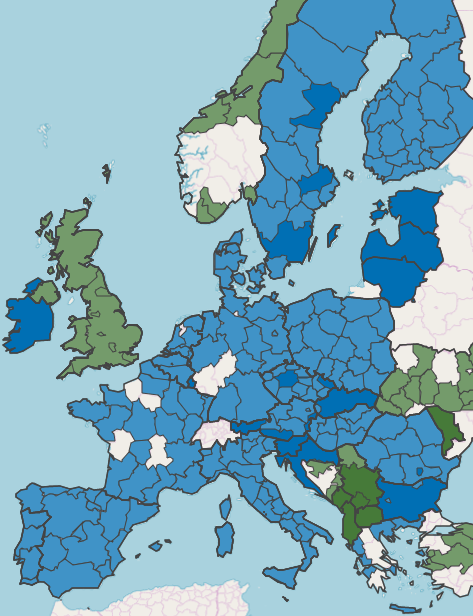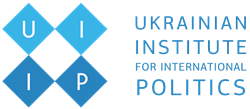Smart specialisation
- Home
- Directions
- Smart specialisation
What is smart specialisation?
Conceived within the reformed Cohesion policy of the European Commission, Smart Specialisation is a place-based approach characterised by the identification of strategic areas for intervention based both on the analysis of the strengths and potential of the economy and on an Entrepreneurial Discovery Process (EDP) with wide stakeholder involvement. It is outward-looking and embraces a broad view of innovation including but certainly not limited to technology-driven approaches, supported by effective monitoring mechanisms.
The peculiarity of this policy is that the government encourages and incentivizes entrepreneurs, research and development to better cooperate with enterprises to discover the main areas and/or sectors of specialization of the region. Clusters are important in this concept both as the main "building blocks" for building such specialization and as a means of implementing this strategy.
The Smart Specialization Platform is a platform for countries and regions to implement local approaches to identifying strategic sectors for smart specialization.
⤵️ It provides regions with access to free online tools and a comprehensive guide to create, monitor and update smart specialization strategies.
What information can be found on the platform?
▶️ Regions implementing smart specialization
A handy map helps you find regions implementing smart specialization, as well as find out their priorities, organized events, tools they use, and contacts of regional coordinators. In short, everything you need and more.
▶️ Platform activities
Conceptual and methodological management
The main methodological guide that is constantly updated. It contains useful information for stakeholders at the national and regional levels who want to move towards creating smart specialization strategies (design phase) and developing these strategies (implementation phase). In addition to all the necessary information, the Platform provides useful tools.
Expert evaluation
The S3 Platform regularly organizes workshops for countries and regions that have registered on the Platform. They are aimed at training and experience exchange.
Academic research and analysis
The JRC conducts interdisciplinary research to support S3 implementation.
Events
The platform organizes two main types of events: awareness-raising workshops explain and disseminate the concept of smart specialization among interested regions and institutions; workshops for registered regions address specific aspects of regional implementation of smart specialization.
▶️ Priority areas of smart specialization
The Platform provides information on all areas of smart specialization, including: Agri food, Energy, Education and Skills for S3, Blue growth, Industrial Modernization, Sustainable development Goals, Digital Innovation for Industry, Industrial Transition, Targeted support. The regions in which this direction is being implemented, its goals, as well as events and updates, can also be found on the Platform.
▶️ S3 tools and data sources
The S3 Platform provides special tools that allow users to identify potential economic areas for smart and are aimed at promoting interregional cooperation.
Here are some of these tools:
➡️ https://bit.ly/eye_RIS3
Eye@RIS3 is an online database of RIS3 priorities designed as a strategy development tool
➡️ https://bit.ly/Digital_Innovation_Hubs
The Digital Innovation Hubs tool is an online directory that provides comprehensive information about digital innovation hubs in Europe. The ultimate goal of the tool is to help companies access the competencies needed to digitize their products and services.
➡️ https://bit.ly/Regioal_Benchmarking
This is an interactive regional benchmarking tool that helps to identify structurally similar regions across Europe with a simple click of the mouse.

Both EU member states and non-EU countries are working on the implementation of Smart Specialization.
Entrepreneurial discovery process is a key, long-term and collaborative stage of Smart Specialization.
It is the process of identifying or generating new and specific products, technologies or services that have an innovative component in broad sectors of economic activity. In other words, it is a process of search and prioritization that focuses on involving a wide range of stakeholders and takes into account market dynamics.
The complexity of this stage lies in the absence of a single approved methodology, so each region involved in the development of the approach builds its own roadmap for identifying S3 priorities, taking into account its own characteristics and conditions for obtaining the desired result. Nevertheless, there are common EDP stages for all:
- the preparation stage, which includes approval of the coordination of Smart Specialization at the oblast level and coordination of each priority area identified by the results of quantitative and qualitative analysis (the initial stage of Smart Specialization development);
- preparation stage, which includes planning of the EDP roadmap in the region by the coordination group to plan the necessary activities;
- participatory stage, consisting of building a common vision of the priority area development based on the current situation of the region and taking into account market dynamics and ways to increase the region's competitiveness; this stage includes analysis of global trends and trends in the selected field of economic activity and analysis of available resources in the region;
- participatory stage, during which the prioritization mechanism is used, where a wide range of economic activities begins to narrow down, identifying more specific topics and niches that will ultimately become S3 priorities;
- the stage of joint planning for the implementation of the selected S3 priorities is a post-EDP stage, but is also an integral part of the process.
S3 identifies priorities in areas where countries or regions have a competitive advantage or potential for development.
The number and specifics of these priorities vary greatly from region to region. Priorities can be formulated in terms of knowledge areas or activities, subsystems within a sector or across sectors, and relevance to specific market niches, clusters, technologies, or technology applications to address specific societal and environmental challenges or public health and safety.
Title
Headline
Title
Title
Title

Headline
Title
Title
Title
Headline
Title
Title
Title

Contact us
-
+380 50 424 85 24

